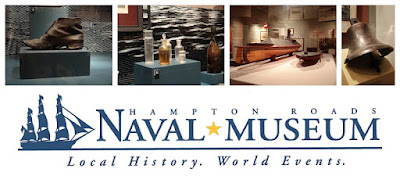By John Pentangelo
HRNM Director
No, the U.S. Army did not give birth to the idea of a Naval War College, not exactly. But, a discussion between one of its most famous officers and one of the Navy’s most visionary intellectuals at the close of the American Civil War provided a spark that influenced professional military education forever after.
Established in Newport, Rhode Island in 1884, the Naval War College was the first institution of its kind in the world. It is renowned today for its role in educating naval officers in their chosen profession. The lectures provided by Alfred Thayer Mahan in early years became the basis of his seminal book, The Influence of Sea Power Upon History, 1660-1783. The book, published in 1890, was read widely by world leaders and influenced the build-up of major naval powers in the early 20th century. The college continued to do innovative work in the field of war gaming and the development of war plans after the First World War. Admiral Chester W. Nimitz, a 1923 graduate of the college, credited the war gaming program with helping to prepare the Navy’s ultimate victory in the Pacific during the Second World War. Today the college educates military personnel from all over the world, nourishes global partnerships, and offers a Master’s degree in Defense and Strategic Studies. So how did the idea for the Naval War College originate?
 |
| General William Tecumseh Sherman, 1865 (National Archives) |
In 1865, Lieutenant Commander Stephen B. Luce was in command of the gunboat USS Pontiac with the South Atlantic Blockading Squadron. He was ordered to report to General William Tecumseh Sherman to guard the crossing of Savannah River as Sherman marched north to begin his campaign in the Carolinas. In discussion, Sherman shared his opinion on how to take the city of Charleston. The Navy tried unsuccessfully to take Charleston by bombarding Fort Sumter for three years. Sherman told the naval officer that Charleston would fall into the Union’s hands “like a ripe pear” when he cut its communications. This proved to be true in the next few weeks. Luce recalled: “After hearing General Sherman’s clear exposition of the military situation the scales seemed to fall from my eyes. ‘Here’ I said to myself, ‘is a soldier who knows his business!’ It dawned upon me that there were certain fundamental principles underlying military operations, which it were well to look into; principles of general application whether the operations were conducted on land or sea.”[1] The seed was planted.
 |
| Lieutenant Commander Stephen B. Luce, c. 1865 (Naval History and Heritage Command) |
Long devoted to education, Luce devoted much of his career to the formal education of naval personnel. Assigned to the Naval Academy during the early years of the Civil War, he revised W.H. Parker’s Instructions for Light Artillery, Afloat and Ashore. He also wrote and published Seamanship, a text for midshipmen. After the war, Luce lamented that naval officers began to specialize increasingly in navigation, hydrography, engineering, or ordnance. He fought against this, insisting to his fellow officers that their profession was war and it was war that they must study. After helping to establish the maritime college in New York (1874), he established the naval apprentice program aboard training ships in the late 1870s and was instrumental in the creation of the Navy’s first shore-based recruit training station at Newport (1883). During this time, he never forgot his meeting with Sherman. The general’s assessment of the military situation and his ability to execute a solution in a non-military way convinced Luce that decision makers required subject matter experts to advise them on military problems. The expertise in the art and science of naval warfare would be best developed through formal education. After years of advocacy, correspondence, research, and thought, Luce became the founding president of the Naval War College, established in 1884. He defined the college as “a place of original research on all questions relating to war and to statesmanship connected with war, or the prevention of war.”[2] The College owes its existence to the visionary leadership, perseverance, and commitment of Rear Admiral Stephen B. Luce. Perhaps it owes its inspiration to General William Tecumseh Sherman.
[1] Stephen Luce, “Naval Administration, III,” U.S. Naval Institute Proceedings Vol. 29 (1903): 820
[2] Stephen B. Luce, An Address Delivered at the United States Naval War College, The Writings of Stephen B. Luce, eds. John D. Hayes and John B. Hattendorf Naval War College Press Newport, RI, 39-40

No comments:
Post a Comment